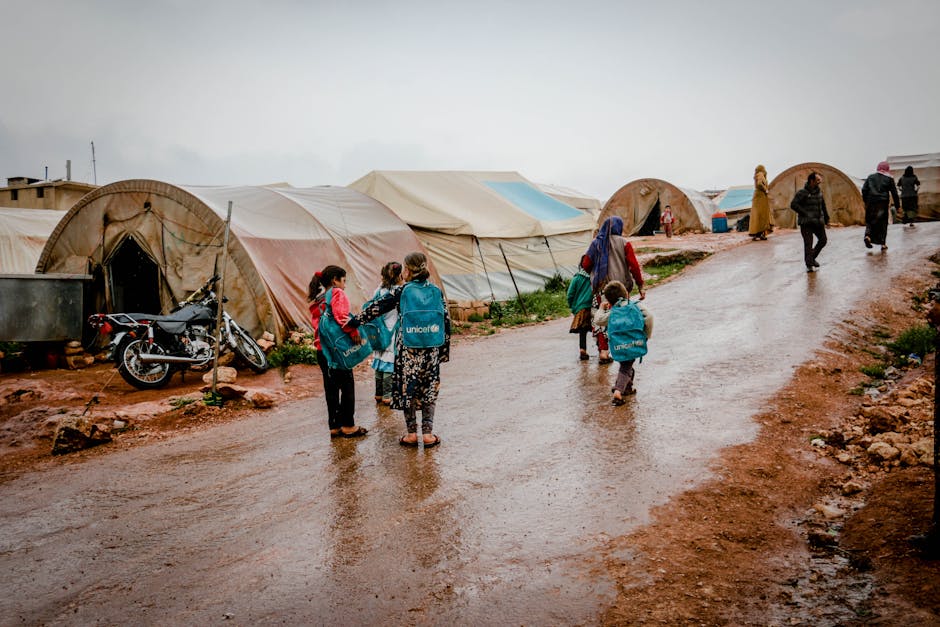The United Nations has urgently called on Israel to reopen the Rafah border crossing and significantly ramp up humanitarian aid to Gaza, as a fragile ceasefire hangs in the balance. The appeal comes amid escalating global pressure to address the dire humanitarian crisis in the besieged enclave, where millions face starvation, disease, and displacement.
Rafah Crossing: Gaza’s Critical Lifeline
The Rafah border, the primary gateway between Gaza and Egypt, has been a critical conduit for aid since the onset of the Israel-Hamas conflict. However, recent Israeli military operations in the area have severely restricted access, exacerbating shortages of food, medicine, and fuel. UN officials warn that the closure has pushed Gaza’s population—already reeling from months of bombardment—to the brink of catastrophe.
“The Rafah crossing must be reopened immediately,” said UN Secretary-General António Guterres in a live address. “Without it, the suffering of Palestinians will reach unimaginable levels.” Reports indicate that over 1 million displaced Gazans are crammed into Rafah, with limited access to clean water, sanitation, or medical care.
Ceasefire Talks and Aid Shortages
The UN’s plea coincides with renewed ceasefire negotiations brokered by Egypt and Qatar. While Israel and Hamas have tentatively agreed to a temporary pause in hostilities, aid organizations stress that a truce alone is insufficient without unimpeded humanitarian access.
“A ceasefire is meaningless if aid cannot reach those in need,” said Martin Griffiths, the UN’s Under-Secretary-General for Humanitarian Affairs. “We need safe, sustained corridors to deliver lifesaving supplies.” The UN estimates that at least 500 trucks of aid per day are required to meet Gaza’s needs—a stark contrast to the current trickle of fewer than 100 trucks.
Global Pressure on Israel
The international community has echoed the UN’s demands, with several nations condemning Israel’s restrictions on aid. The US, while reaffirming its support for Israel’s security, has publicly urged Jerusalem to facilitate more aid deliveries. “The status quo is unsustainable,” said a White House spokesperson. “Israel must do more to prevent further civilian suffering.”
Meanwhile, Arab and European leaders have called for an immediate, unconditional opening of all crossings into Gaza. The Organization of Islamic Cooperation (OIC) labeled the blockade a “violation of international law,” while the EU announced additional funding for humanitarian agencies operating in the region.
Gaza’s Deepening Humanitarian Crisis
Inside Gaza, the situation grows increasingly desperate. Hospitals, already overwhelmed, are running out of basic supplies. “We’re performing surgeries without anesthesia,” said Dr. Fadel Naim at Al-Shifa Hospital. “Children are dying from preventable diseases due to malnutrition and unsanitary conditions.”
Displaced families in Rafah describe scenes of chaos, with overcrowded shelters and rampant disease. “There’s no food, no safety—just endless fear,” said Mariam Al-Hassan, a mother of four. “We need the world to act now.”
Will Israel Comply?
As diplomatic efforts intensify, the question remains whether Israel will heed the UN’s call. Israeli officials have cited security concerns, alleging Hamas diverting aid, but aid groups insist stricter monitoring mechanisms can address these risks.
For now, the world watches as Gaza’s fate hangs in the balance. The UN’s message is clear: without immediate action, the humanitarian toll will spiral beyond redemption.
Stay tuned for real-time updates on this developing story.
— Reporting by NextMinuteNews Team




